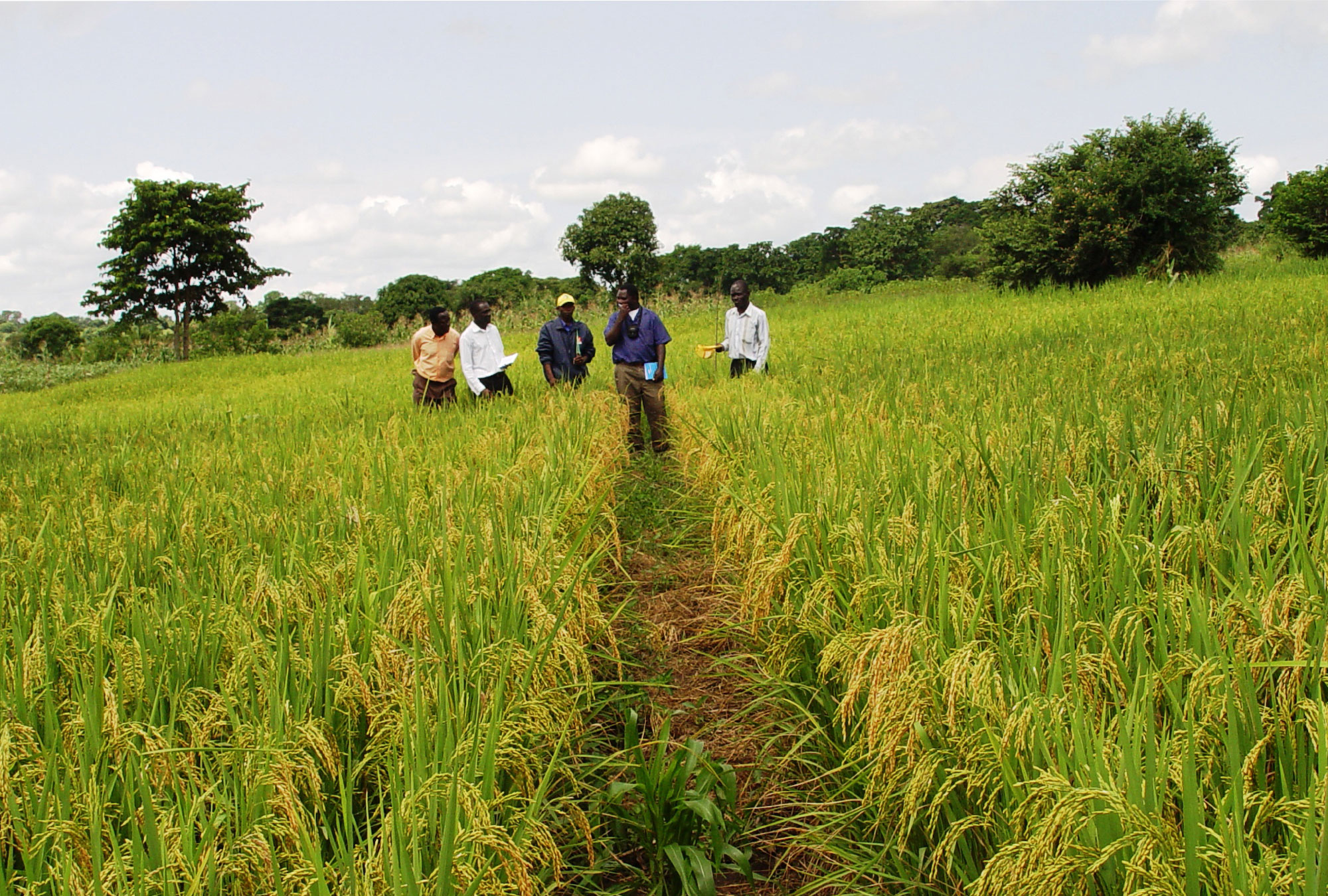Overview
Researchers
Rachel Glennerster
Executive Director of the Abdul Latif Jameel Poverty Action Lab (J-PAL) at the Massachusetts Institute of Technology
Tavneet Suri
Louis E. Seley Professor of Applied Economics and Professor of Applied Economics at the MIT Sloan School of Management
Jeannie Annan
Senior Research Associate at the University of Chicago Harris School of Public Policy, Director of Research and Evaluation at the International Rescue Committee
Charles Dixon
Frances Kimmins
Senior Agricultural Adviser at the International Rescue Committee
- Country
- Sierra Leone
- Timeline
- 05/01/2010 - 12/31/2016
- Previously Funded Stages
- Adoption, Pilot
- Constraints
- Externalities, Information, Input and Output Markets, Risk
- Technology Category
- Improved Seed, Inputs

Photo credit: IRRI
Improved crop varieties have the potential to produce higher yields than traditional varieties, but farmers may not know how to adjust their practices to properly grow these crops to reap the benefits. Researchers identify the importance of training farmers when cultivation practices are new or difficult, and also measure the real-world rice yields from NERICA-3, as well as the nutrition and health impacts among rural households in Sierra Leone.
While improved crop varieties like NERICA (New Rice for Africa)—a shorter-duration, higher-yield variety with an improved protein content—can produce yields much higher than traditional varieties under laboratory conditions, rural farmers often do not have the knowledge to properly grow these crops. In addition, the health benefits of planting improved crops are not well understood. A previous randomized evaluation conducted by the researchers found that farmers in Sierra Leone who were trained how to grow NERICA-3 rice had yields that were 15 percent higher, but yields were 14 percent lower when farmers were provided with seeds but no training. The study also found initial indications of positive health effects. However, the expense and difficulty in replicating training create a challenge when farmers adopt new crops which require more complex crop-cycle management. In the researchers’ earlier study, training cost approximately US$600 per farmer, much higher than the value of the gains in yields at US$179 per farmer. This is one of the first studies to test whether a lower cost training could be sufficient to teach farmers how to grow NERICA-3, thereby making it more cost-effective, and to examine the health impacts of adopting NERICA-3.
In the study regions of rural Sierra Leone, between 19 and 24 percent of children under five years old are malnourished and between 44 and 49 percent are stunted. In a previous study, 97 percent of survey respondents reported being hungry in August, at the peak of the hunger season, but only 2.1 percent reported being hungry in March, after the harvest. This uneven consumption can be damaging to health, particularly for young children. NERICA-3, a new upland rice variety creating by crossing African and Asian varieties, has a slightly higher protein content, higher yields, and shorter crop cycle than traditional rice varieties. West Africa has about 1.3 million upland rice farmers, and 44 percent of rice production (about 1.8 million hectares) takes place in upland environments. Thus, an improved upland rice variety could significantly boost both income and nutrition for rural rice farmers.
Researchers are testing the impact of provision of improved rice seeds, combined with training to build farmers’ capacity to use the new seed variety, on rice production and health. The study will take place in 183 villages in the districts of Moyamba, Tonkolili, and Mombali. Villages will be randomly assigned to two groups: (1) a comparison group (130 villages), and (2) a group receiving free NERICA-3 with low-cost training focusing on germination issues (130 villages). Within the treatment village, eight households will be randomly assigned to receive one bushel NERICA-3 to plant. Researchers will also follow five randomly-selected households in each village that will not receive NERICA-3 seeds. BRAC, an NGO with extensive experience in Sierra Leone, will conduct training using their existing network of rural trainers. NERICA-3 seeds and training will be provided in 2016, with two follow up surveys to be conducted in January 2017 and January 2018.